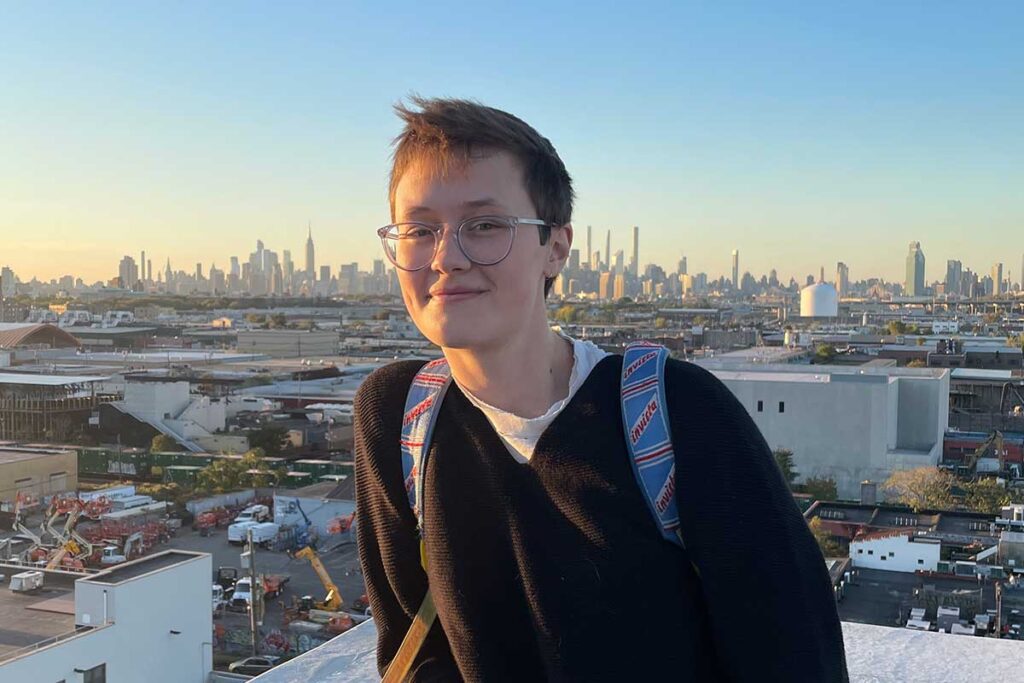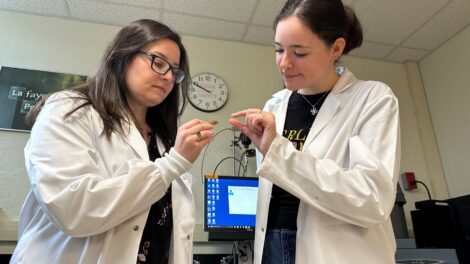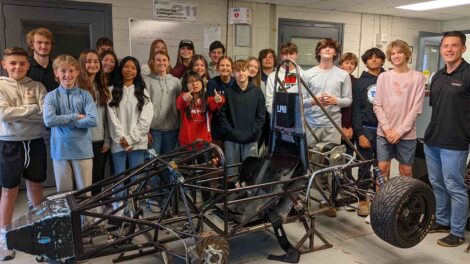Engineering success story: Brynn Fuller-Becker ’19
Brynn Fuller-Becker ’19 is the communications and advocacy manager at New Yorkers for Clean Power (NYCP)—a statewide collaborative campaign that advances a range of clean energy solutions. In addition to being in charge of NYCP’s internal communications (including their weekly e-newsletter, social media channels, and website content), Fuller-Becker designs and implements strategic communications campaigns across three statewide coalition teams focused on clean transportation, building decarbonization, and workforce development, utilizing media trends and political opportunities to develop projects focused on the passage of statewide legislation. Through working in collaborative coalitions, Fuller-Becker has aided in the passing of six building decarbonization and energy efficiency bills to date, including the All-Electric Building Act—the first of its kind in the nation. Fuller-Becker earned a Bachelor of Arts in engineering studies and a Bachelor of Science in environmental science from Lafayette College.

Brynn Fuller-Becker ’19 is the communications and advocacy manager at New Yorkers for Clean Power
What do you love about the work that you do? How does it feel to make such a positive impact on the environment?
What I love about it is that it’s fast-paced and multidisciplinary, and it has a tangible impact on the world around me. Working in the climate space can feel incredibly daunting, and it can be hard to feel like you’re making a lasting impact on this gargantuan issue. But, by being strategic, nimble, and organized, I’ve found climate advocacy, especially within the communications focus, to be a worthwhile area of focus. Deciding to work on the statewide level in New York has been helpful too. Make no mistake; there are many instances when we work incredibly hard and do not get the win that we seek. But the wins we get in New York are huge, and they send an indicator to the rest of the country, if not the world, for what is possible in securing a sustainable future.
What sparked your interest in climate change? Was this something you always wanted to do?
After taking an environmental geoscience class and several math courses I enjoyed in high school, I knew I wanted to pursue an academic career that focused on the natural environment and allowed me to utilize my aptitude for math and science. Upon entering Lafayette, I also felt a deep duty to focus my environmental science expertise on the climate crisis. After graduating from college, I first worked in the environmental consulting field, but soon found that the laws and standards I was tasked with working within were far too weak to adequately address the climate crisis and preserve our natural resources. It was at that time that I knew I had to focus my efforts on strengthening those laws.
Were there any professors, courses, or experiences that were particularly influential to you during your time at Lafayette and that continue to impact your work today?
Being a dual-degree student meant I had to take a lot of classes. While that was stressful and daunting, it also meant I learned from many amazing educators. In Intro to the Environment, Prof. Andrea Armstrong introduced me to the rich confluence of social science and environmental science, plus the concept of analyzing ideas through a ‘systems thinking’ lens. In his Mapping World Cities course, Prof. Caleb Gallemore sparked my interest in geographic information systems—especially their applications within social science. Profs. Benjamin Cohen and Julia Nicodemus were my go-to mentors for all things EGRS: Prof. Nicodemus’ Energy Technology & the Modern World course taught me everything I know about where our energy needs to come from and how it should be implemented for a holistically sustainable future, and in Prof. Cohen’s Engineering & Society seminar I shared musings with my classmates on the ethics of the engineered world and earned my chops as a writer. Last but certainly not least, Prof. Kira Lawrence’s Climate Change course cemented my plans of fighting the climate crisis as my vocation.
From the second semester of my sophomore year through the first semester of my junior year, I also worked as an EXCEL Scholar under the leadership and guidance of Prof. Armstrong. During that time, I honed my environmental studies knowledge and developed a proficiency with GIS to craft spatial analysis/processing methods, manage data, and interpret aerial imagery to develop an understanding of land owner perceptions and actions within the Owasco Lake Watershed in central N.Y. This research was hugely influential for me in two main ways. First, it was my seminal opportunity to put my multidisciplinary education into action by combining social science theory and hydrological data, using GIS and my writing skills as a tool for communicating my findings. Second, this work helped me realize that the perceptions of people were often just as, if not more, impactful on the environments around them as the built and natural environments themselves. A stream on someone’s property could have incredible potential to improve water quality in their watershed. But, if the person who lived near that stream didn’t recognize its importance and tend to it accordingly, the environmental potential of that stream is moot. This idea has had an immense impact on how I approach my work.
How did your other experiences at Lafayette help lay the foundation for your career?
My job is spot-on with the type of work I had hoped to do with my dual degree. It is centered around both how engineered systems (like heat pumps, thermal energy networks, and electric buses) work, and how to communicate about these systems in non-engineering spaces (like through policy, media, and community organizing). It requires both the technical knowledge that my engineering design and environmental science classes taught me, plus the contextual knowledge that my engineering studies, common course of study, and elective classes taught me. In addition to multidisciplinary thinking, my job requires heightened skills of active listening and systems thinking. I think the values-based orientation of the Engineering Studies Department was critical in helping me develop these skills.
What are your goals for the future?
Because climate change touches everything, you can work anywhere. I enjoy my current focus areas of decarbonizing buildings and transportation, and I would like to gain more experience in the equitable development and implementation of renewable energy. I also really like writing- and collaboration-heavy work, so I plan to continue honing those skills in the future. I plan to continue changing the world for the better by promising myself to always focus on known, tangible solutions to fighting climate change—and always centering those fights on providing equity to the spaces and people that have been unequally impacted by the climate crisis.
What kind of advice can you offer to current engineering students about how to apply what they’re learning to their future careers?
Engineered systems and technology have amazing potential to better the spaces around us. But if those technologies and systems are not implemented in a way that serves, benefits, and respects the inhabitants where they are placed, they aren’t worth implementing. Solving big problems isn’t just about designing and building; it’s about listening, collaborating, building relationships, and strengthening community. Only then can the technology be implemented to its full potential. Those human-centered parts take a lot of time and effort, and they do not always turn a big profit. But they’re always necessary and worth it. I would encourage engineering students to keep these ideas in mind when exploring career paths and opportunities.

